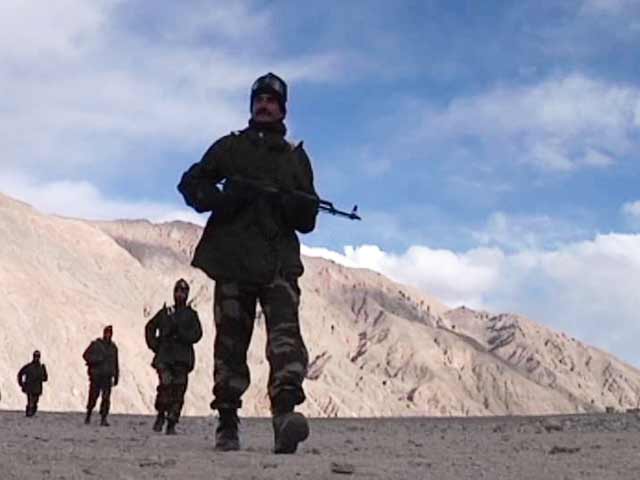The Chinese incursions into our territory in the Galwan Valley region, resulting in the death of at least 20 soldiers, perhaps, is a provocation that has evoked both an emotional, as well as an indignant response from the entire nation. Although, the PM, Narendra Modi, on Friday, at the all-party meeting, categorically declared that no inch of Indian territory was under Chinese occupation, and if so, a befitting reply would be given to those who transgress our boundaries, yet there remain questions that continue to hover around regarding the actual position.
The sacrifice of 20 brave-hearts, who were massacred in the most barbaric manner by the Chinese, makes it imperative for the entire country to ensure that Chinese expansionist designs are nipped in the bud, thereby disallowing them to constantly gnaw at our territory, supposedly slice-by-slice. Under no circumstances, the Himalayan Blunder that had caught us napping in the early 1960s should be a repeat-show.
In fact, the Indo-Sino conflict remains the darkest chapter of PM Jawaharlal Nehru’s otherwise successful tenure, and his conviction that the “Dragon” would not dare to step into our terrain proved to be his gravest mistake. The lack of preparedness of the armed forces was evident when it was subsequently discovered that in various parts, ordnance factories were manufacturing thermos flasks and shoes, instead of arms and ammunition.
Nehru’s advisers attempted to insulate him from his lapse by engineering the dismissing of the then Defence Minister, V.K. Krishna Menon, but it proved insufficient, since at the end of the day, it is the Prime Minister who is answerable. Out-classed by superior weaponry, Indian Army acquitted itself with unparalleled valour, inflicting heavy casualties on the Chinese. However, the war was lost, with the Chinese gaining the upper-hand, by divesting India of huge territory.
Many experts have stated that the Chinese aggression was linked to the internal problems faced by Chairman Mao, who was in dire need to divert the attention of the powerful people stamping his party, so as to reconsolidate his position. A similar scenario may have prompted the Chinese to intrude into the Galwan region in order to provoke the Indian side to commence a full-fledged war. Many ambitious Chinese politicians are uncomfortable with President Xi Jinping’s proclamation declaring himself as the life-long head of state. In other words, he needed a pretext to siphon the attention away from himself, thereby directing his army to attack India.
China has visibly been perturbed ever since the Kashmir policy of the government attempted to change critical parameters in the region. In addition, they are attempting to foment trouble in India’s neighbourhood; the irrational posturing by Nepal, being an illustration. Admittedly, there are definite Chinese designs to increase its influence over the Indian Ocean zone in order to secure its oil supply chain from the Gulf, as well as to subvert India.
The Chinese are well-known bullies, who, over a period of time, furnish outdated yesteryear maps to assert claim over the sovereign territories of other countries. The Japanese are aware of this, as are the Vietnamese and Malaysians. However, no one has had the courage to challenge the Chinese and their nefarious plans.
There is no doubt that China is economically manifold more robust than any other Asian country. However, that does not mean that they can have their way at the expense of other countries by resorting to in-your-face unlawful actions. The recent occurrences in the areas surrounding the Galwan valley are a matter, which, by no means, can be taken without vigilantly acting upon. Soldiers are ever-ready to lay down their lives for their country, but to pelt them with stones, clubs and barbed-wire studded rods, in order to murderously kill them, showcases a ring-view of their savagery. In 2020, with warfare evolving to highly techno-savvy levels, the Chinese used these primitive stone-age implements to demoralise the Indian forces with their “new-age” psychologically undermining tactics.
At times, there is no better defence than offence. As Punjab CM, Captain Amarinder Singh, a veteran of the 1962 and the 1965 wars, stated, “If they kill one of our soldiers, we should bring down at least five of them. They should be hit so hard that when the negotiations begin, New Delhi acquires a vantage position.” In plain-speak, this being the only way of countering their expansionist ambitions.
What has amazed independent observers is that senior government functionaries have been concealing multiple facts, and in the process, have been contradicting themselves. What needs to be known: Why were the Chinese allowed to consolidate their positions in the area that belongs to us, as per all valid available records? Who has been overseeing this incursion and restraining our Army from giving the enemy “a bloody nose”?
The martyrdom of the jawans and officers, notwithstanding the number of soldiers killed on the other side, can by no means be allowed to go in vain. Those who were responsible for restraining them or depriving them of their weapons must be held accountable. In 1962, India had suffered at the hands of the Chinese, but now India is better prepared for combat. The Prime Minister must understand that unless he takes immediate steps to undo the damage, his impeccable reputation of being a strong leader would be dented.
He must not allow a passive approach to provide an advantage to the Chinese. He should act swiftly after taking advice from military experts. Between us.

